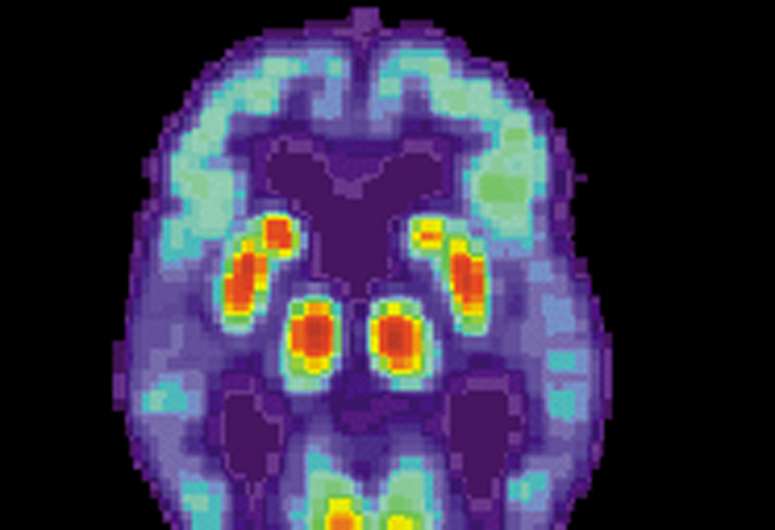This article has been reviewed according to Science X's editorial process and policies. Editors have highlighted the following attributes while ensuring the content's credibility:
fact-checked
proofread
Research group calls for consensus, collaboration to improve understanding of how infections drive Alzheimer's

A research consortium, including a Philadelphia College of Osteopathic Medicine neuroscientist and his research coordinator, are calling for a consensus on how scientists identify and evaluate how infections contribute to or cause cognitive impairment and dementias, including Alzheimer's disease.
Writing in Alzheimer's & Dementia, the researchers aim to raise awareness "that microbial infection is a known cause of some types of dementia, and to evaluate the hurdles to be overcome in the development of rapid and accurate" diagnostics to assess infections in people who have or are at risk of developing Alzheimer's.
The implication is that if scientists and clinicians come to agreement on the role infection plays in Alzheimer's and develop a standard methodology to evaluate people with early signs of the disease, patients could—in the future—be set "on an appropriate antimicrobial therapeutic path with the aim of arresting or reversing disease progression."
Brian J. Balin, Ph.D., a professor of Neuroscience and Neuropathology and director of the Center for Chronic Disorders of Aging at PCOM, and colleagues affiliated with Intracell Research Group outline recent scientific findings that the signature protein in a brain affected by Alzheimer's (the Aβ peptide) plays a notable role in the immune system's response to pathogens. The authors suggest that "downstream failure of this immune response or persistent activation from chronic infection leads to sustained inflammation and neurodegeneration," as well as cell death, which leads to Alzheimer's. The researchers also contend that genetic risk factors likely involve infection.
"There's mounting evidence, including in various patient case reports we highlight in our paper, of infectious diseases serving as a primary cause of dementia, which leads us to make this call for consensus," Balin said. "Taking the steps we propose could move the assertion that microbes play a causal role in neuroinflammation and neurodegeneration—as seen in Alzheimer's—from controversy to consensus."
Balin and colleagues say there's urgent need among scientists for:
- interdisciplinary collaboration and consensus
- testing and validating the best methods to characterize the brain pathobiome, and
- identifying the least-invasive biosamples, collected from living patients, which could confirm microbial infections
There are numerous options for biosample collection, so that will be a major task in itself. The researchers suggest methods ranging from cerebrospinal fluid and blood draws to nasal brush sampling. From there, protocols would need to be established to extract nucleic acids from the tissue or fluid in order to analyze them for any infections.
Through the establishment of a consensus detection protocol, experts would identify the most representative tissues or samples for the brain microbiome; determine which extraction method, or combination of methods, is best; and take other steps to lead the scientific community toward the ability to have reproducible lab results.
From there, the researchers suggest a pilot study that would test patients with varying stages of dementia and Alzheimer's, using the consensus detection protocol, with the ultimate goal of treating patients with appropriate antimicrobial medication. To that end, the researchers are labeling the development of the consensus protocol as the Alzheimer's Pathobiome Initiative, which they say would require input and support from specialists ranging from neuropathologists and neurologists to microbiologists, molecular biologists, and bioinformatics experts.
"We want scientists globally to interact more and consolidate efforts that standardize approaches to how we diagnose infections when people have neurocognitive change," Balin said. "We want to know what infections exist and, ultimately, seek to develop better interventions to treat dementias based on infection. This call for consensus gives the scientific community a clearer roadmap to help get us there."
Lead authors of the paper are Richard Lathe of the University of Edinburgh Medical School and Nikki Schultek, principal and founder of the Intracell Research Group. Collaborators include Christine Hammond, MS, research coordinator in Balin's lab.
More information: Richard Lathe et al, Establishment of a consensus protocol to explore the brain pathobiome in patients with mild cognitive impairment and Alzheimer's disease, Alzheimer's & Dementia (2023). DOI: 10.1002/alz.13076. alz-journals.onlinelibrary.wil … ll/10.1002/alz.13076





















